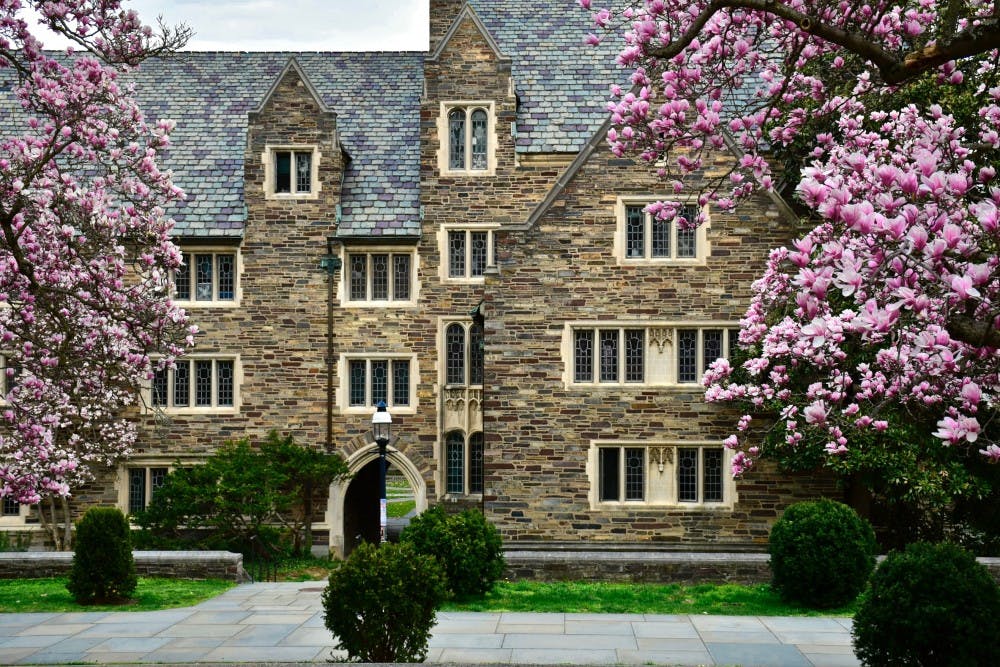The University updated its policies for students seeking No Communication Orders (NCO) from August 2022 onwards.
Under the new policy, students are expected to communicate their wish for an end to all communication directly to the other party before escalating the request to the University through an official NCO. Only if that first informal request is not honored, a community member’s request for an NCO will then be reviewed by “appropriate University administrators.”
Students who request NCOs due to sexual misconduct are exempt from this policy change and are therefore not expected to informally communicate with their alleged perpetrator.
An NCO prevents students from contacting each other in person or online, and in some cases, prevents students from being in close physical proximity or in the same spaces. Students under an NCO may only communicate through approved University administrators. NCOs requested by a single party usually last for a period of 12 months but can be extended, while NCOs that are mutually requested typically last for 3 months.
Under the previous policy, NCOs were reviewed upon their original request, without first requiring students to communicate directly to each other.
According to the “Conflict Resolution Page” on the website of the Office of the Dean for Undergraduate Students, NCOs are designed for “an interpersonal conflict or situation that members of the University community believe is interfering with their educational or work environment.”
In an email to The Daily Princetonian, University Spokesperson Michael Hotchkiss wrote that “Princeton has a long-standing practice of providing two-way NCOs to individuals who request them for a period of time. They help to ensure an environment in which individuals can focus on and pursue their education and/or work.”
In September, The Wall Street Journal (WSJ) published an op-ed by Danielle Shapiro ’25 criticizing the original policy. She claimed that she had received an NCO during the spring semester from Harshini Abbaraju ’22, a member of the Princeton Committee on Palestine (PCP), who organized a protest outside of the Center for Jewish Life (CJL) opposing University-affiliated internships in Israel in February 2022.

According to Shapiro’s WSJ op-ed, Abbaraju filed an NCO against Shapiro after Shapiro contacted Abbaraju for an article that Shapiro was writing for The Princeton Tory about the PCP protest.
In an email to ‘Prince,’ Abbaraju explained why she sought the NCO. “The story published in March [by the Princeton Tory] about the PCP protest of the Israel Summer Programs Fair contains numerous harmful mistruths and mischaracterizations — about me and other PCP activists — that were never corrected,” she wrote.
Hotchkiss emphasized to the Princeton Alumni Weekly (PAW) the change in NCOs since the events described by Shapiro in her op-ed.
“Since the events described in The Wall Street Journal opinion piece, students seeking a no communication order in situations where there hasn’t been any significant conflict have been asked to first communicate in writing with the other party and let them know they wish to have no contact,“ Hotchkiss told PAW. “If that request isn’t honored, the request for an NCO is reviewed.”

In an email to the ‘Prince’, Shapiro explained that the policy change was not a result of her op-ed as the reforms occurred prior to the publication of her WSJ piece.
Shapiro also emphasized that she has “mixed feelings” about the change in policy.
“While technically there is more of a system in place for acquiring these orders, the fact that the University has now officially sanctioned a forced ‘no-communication order’ on students as a way to deal with what any one student might deem as a conflict is incredibly concerning, especially considering the policy’s implications for freedom of press on campus,” she wrote.
Hotchkiss told the ‘Prince’ that the University’s approach is guided by the 1.7 Resolution of Complaints against Members of the University Community, specifically “1.7.1 Informal Procedures.”
“The University encourages open and honest communication between members of the community,” the website reads. “Most conflicts and differences of opinion between members of the University community can be resolved by the individuals directly confronting issues and jointly exploring alternatives.”
The website also claims that “there are a variety of resources available to individuals who may be called upon to assist in informal conflict resolution.”
More information about NCOs can be found under the “Conflict Resolution” tab of the Office of the Dean of Undergraduate Students website or on the Sexual Harassment/Assault Advising, Resources Education website.
Lia Opperman is an assistant news editor who often covers University affairs, political coverage, and local news.
Laura Robertson is a News staff writer for the ‘Prince.’
Please direct any corrections requests to corrections@dailyprincetonian.com.








